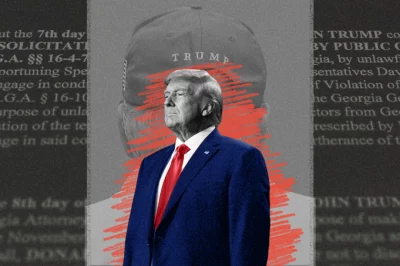A violent attack on democracy’s core characterizes the Capitol Riot of January 6, 2021, which will go down in American history as a sad episode. A spike in political tensions leading up to the 2020 presidential election culminated in the event. Driven by fabricated allegations of electoral malpractice, supporters of former President Donald Trump flocked to the US Capitol with never-before-seen ferocity.
When Congress met that fateful day to officially recognize the results of the Electoral College, a sizable contingent of Trump supporters marched toward the Capitol. After breaking through barriers, smashing windows, and entering the Capitol building, what started as a rally swiftly turned into a full-scale breach. The disarray impeded the constitutional process, driving legislators into hiding and resulting in a terrible death toll, serious injuries, and substantial property damage.
Widespread criticism resulted from the insurrectionary events that shocked the country and the world. Due to the attack, the Capitol’s security system was found to have flaws, which prompted further investigations and requests for a thorough evaluation of security protocols.
Following the riot, the country struggled to address issues such as how political leaders should influence public discourse and how misinformation contributes to political violence. Because of the occurrence, government institutions’ security procedures have been reevaluated, emphasizing the importance of taking solid precautions to safeguard democratic symbols. Several arrests and continuing investigations resulted from law enforcement authorities’ quick action in identifying and apprehending the attackers. Lawmakers and legal experts discussed who should be held accountable for instigating the violence; thus, the legal ramifications went beyond the individuals involved.
Watershed events such as the Capitol riot brought attention to the vulnerabilities of democratic institutions and the difficulties associated with declining voter confidence. The fallout from this historic incident reverberated across the political discourse in the years that followed, influencing discussions about the condition of American democracy and the pressing need for national reconciliation. The Capitol, a representation of democracy, came out bruised but also served as a hub for a national cry to defend the values that make this country what it is.
After the riot in the Capitol, Donald Trump was the target of legal action. His defense team emphasized the value of free speech in political discourse by arguing that the First Amendment protected his remarks. Prosecutors countered that Trump did not step in to stop the violence once it started, citing evidence of a pattern of his statements that appeared to promote assault. The legal debates included many intricate topics, including the boundaries of free speech, leaders’ accountability for their remarks, and the difference between incitement and protected speech.

There are important political implications for the impeachment proceedings against Donald Trump in addition to legal ones. The verdict in these cases might affect Trump’s political career path, his party’s standing, and the political environment. The Republican Party has been divided about whether the trials have brought the party’s principles into line and how to move forward in the wake of Trump. It has also brought attention to how political leaders may either encourage or discourage violence, which has sparked debates on the importance of moral leadership in American politics.
Read More: National symbols as bridges between past and future
There are significant political implications for the impeachment proceedings against Donald Trump, as well as legal ones. The verdict in these cases might affect Trump’s political career path, his party’s standing, and the political environment. The Republican Party has been divided about whether the trials have brought the party’s principles into line and how to move forward in the wake of Trump. It has also brought attention to how political leaders may encourage or discourage violence, which has sparked debates on the importance of moral leadership in American politics.
Read More: Populism and Turmoil: The Impact of Populist Leadership on Law and Order
Public opinion and media attention have significantly shaped the stories surrounding the impeachment trials. Future elections may be impacted by how the public views these proceedings and how the media presents them. This might have a substantial impact on the level of support that the public has for Trump and his party. In addition to being a source of information, the widespread media coverage has sparked discussions over the objectivity of news organizations and the difficulties of providing fair reporting in a time of increased political polarization.
In conclusion, despite the defense team’s steadfast support of Trump’s speech’s First Amendment protection, the prosecution’s evidence showed legitimate worries about the possible repercussions of political leaders’ words. The issue has sparked a broader discourse on the precarious equilibrium between the values of free speech and the necessity of holding people responsible for their words and deeds, particularly when they have influential positions.
Recommendations for addressing these concerns include implementing stricter regulations on political speech, particularly when it incites violence or threatens public safety. However, navigating this territory with caution is essential, respecting the fundamental principles of free speech enshrined in the Constitution. Furthermore, media organizations should strive for unbiased reporting and transparency in their coverage of politically charged events, helping the public better understand the context and nuances of complex issues. Society must engage in open dialogue and critical thinking to navigate the complexities of free speech, ethical leadership, and their implications for the health of the democratic system.
** The opinions expressed in this article are solely those of the author and do not reflect the views or position of World Affairs Insider. The organization neither endorses nor takes responsibility for the content of this article and its accuracy.
An International Relations graduate, with a keen interest in diverse areas of IR; diplomacy, global politics & human rights.








2 responses
Good one👍💫
Keep it up 👍🏻